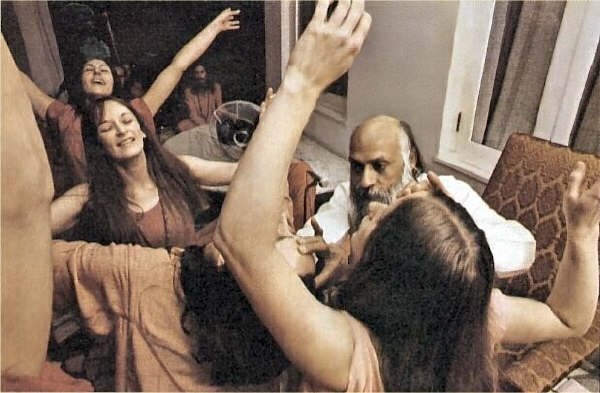Lao Tzu calls even wisdom an illness, because you are falling from the ultimate health, ultimate well-being.
Lao Tzu would not even say no, he would only laugh. Now, what to make of this laugh? You cannot make anything out of it. He is neither saying yes nor saying no; he is not falling from his high state. But at the last moment he was forced to write — this is the only document in the whole history of humanity which has been written under compulsion, which has been coerced — because he wanted to go to the Himalayas. The Himalayas divide China and India; in one sense they divide, in another sense they join. You can see — yes and no are not very different!
He wanted to go to the Himalayas. His disciples asked, "Why?" He had become very old. He must have been very old for the simple reason that…. The story is beautiful; true or not, that is not the point. I am a lover of beauty; I don't bother whether it is true or not!
Beauty is something higher than truth.
Truth is logical, beauty is aesthetic.
Truth is of the head, beauty is something deeper — of the heart.
I love the story….
Lao Tzu lived in his mother's womb for eighty-two years ! It is almost impossible. When he was born he was already eighty-two years old, with a long beard, long hair, and all white. He was already an ancient man — and then he must have lived at least eighty years more. That has been the habit in the East of all the enlightened people. Buddha lived eighty-two years, Mahavira lived eighty-two years, Krishna lived eighty-two years, but Lao Tzu defeated all of them. He lived eighty-two years in the mother's womb first! Then to balance things he must have lived at least eighty-two years outside the womb. He was a man of balance!
So by the time he started thinking about finding a right place to die, he must have been nearabout one hundred and sixty years old. He asked his friends and disciples, "Now give me permission. I would like to go to a faraway virgin peak of the Himalayas to die so that no trace of me is left behind, not even footprints on the sands of time. I would simply like to disappear into the wildness of the Himalayas. Nobody will ever know where I died, where my bones are, where my body is, where my grave is. I just want to melt into existence."
They were sad, but they knew their master — that when he said something he meant it. Reluctantly, they gave him the farewell.
When he was leaving the country, the emperor of the country ordered all the guards at all the posts: "Lao Tzu is not to be allowed to leave the country unless he writes down his experience in short, to be preserved for future generations."
He was caught at the border, and the military guards wouldn't allow him leave until he wrote something. Under such compulsion, he sat in one of the guards' homes for three days. Day in, day out he wrote his small treatise, TAO TE CHING. These are words from that treatise. And when the treatise was complete, he left.
But he begins the treatise with a very strange statement: "TAO cannot be spoken. The moment it is spoken, it is no longer true. Now you can read whatsoever I am writing, it is no longer true; it has already fallen. It has come down from its profound silence into the noisy world of words."
OSHO


